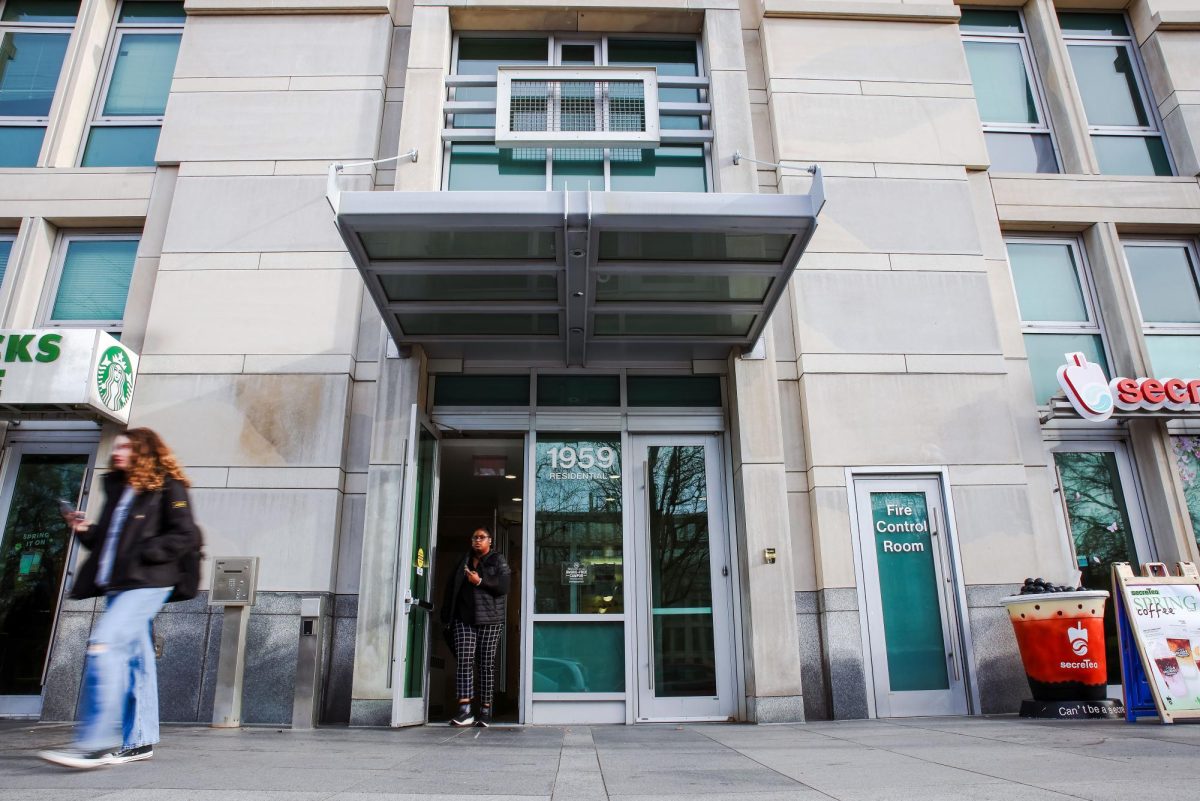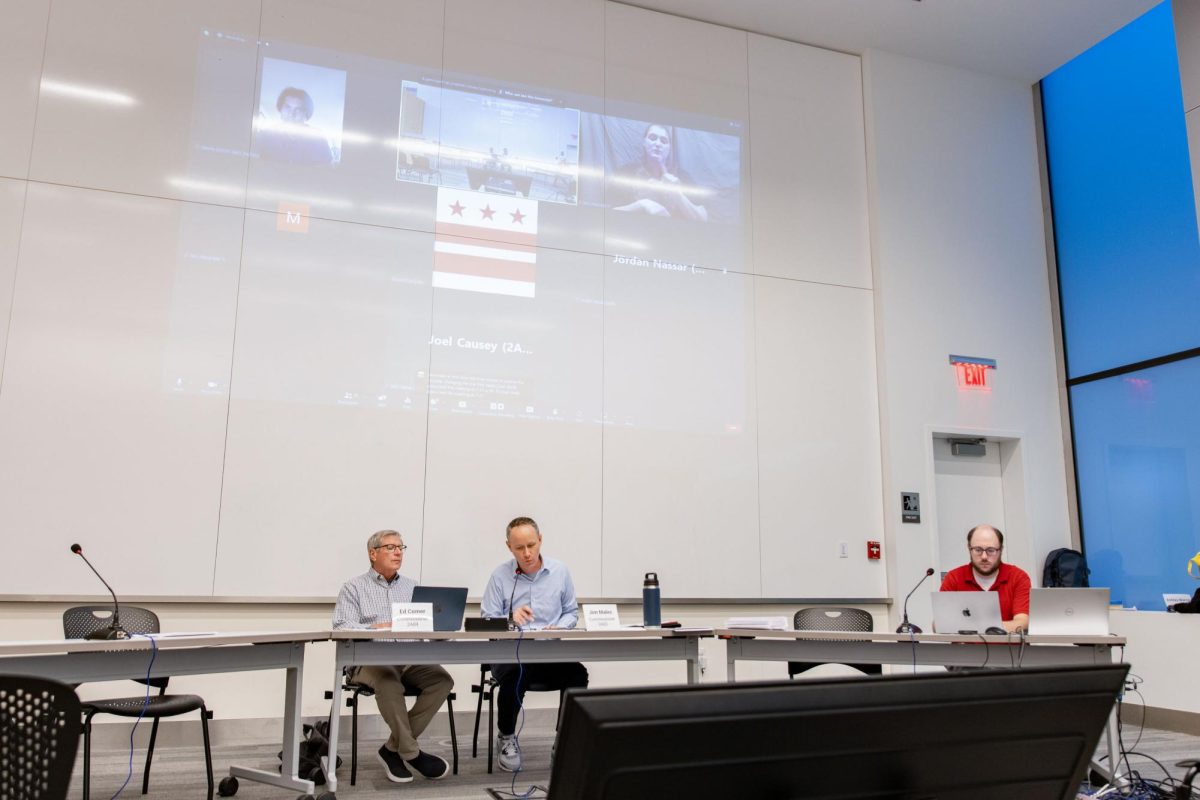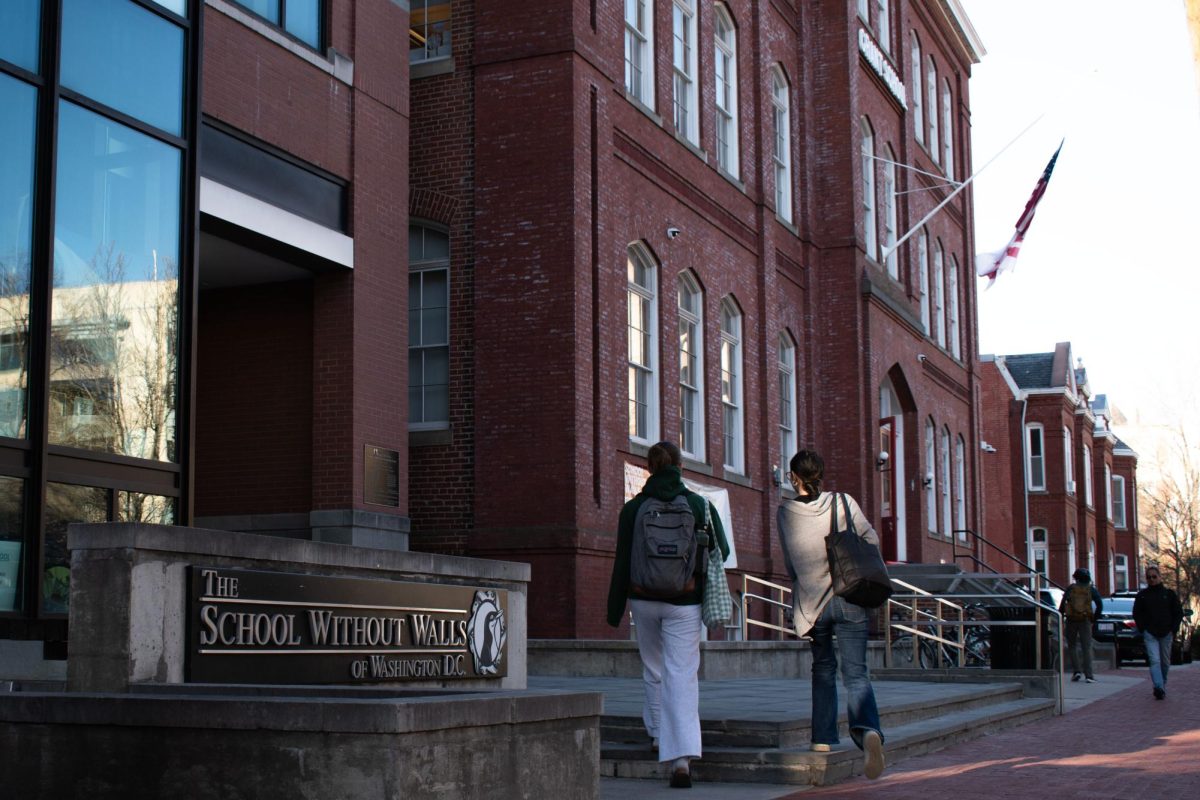The U.S. Census Bureau is distributing surveys to University residence halls to prepare for the 2025 American Community Survey.
Community coordinators distributed copies of the mandatory American Community Survey Group Quarters survey to randomly selected residents in Fulbright Hall and The Dakota in February and in 1959 E Street last month. The survey asks residents about their ethnic background, education, disability status, work and income to gather data for the upcoming 2025 American Community Survey.
Community coordinators in Fulbright Hall and 1959 E Street sent emails to select residents Feb. 15 and March 21, respectively, stating students had to deliver the surveys to the Campus Living & Residential Education office in Amsterdam Hall by Feb. 28 and March 31, respectively. A community coordinator in The Dakota distributed copies of the survey to randomly selected residents in the lobby of the building in February.
The American Community Survey Group Quarters collects data from group housing facilities like residence halls, nursing facilities and military bases to ensure communities receive a “fair share” of federal funds, according to the Census Bureau website.
Tom Edwards, the Census Bureau’s respondent advocate for household surveys, said the survey is sent to a “small percentage” of the national population every year. He said collecting data every year allows officials to see how demographics are changing annually.
“When used in conjunction with the most recently available decennial Census counts, information from the ACS documents how we live as a nation, including our education, housing, jobs, and many other issues,” Edwards said in an email.
The University sent mandatory surveys to all residence halls in April 2010. Then-GW Director of Government Relations Kent Springfield said at the time that Census Bureau employees would contact students who didn’t complete the survey.
Edwards declined to comment on which residence halls received surveys and how many surveys were collected for reasons of confidentiality. He said Census Bureau officials randomly select a sample of group quarters facilities every month and select a random sample of residents from those facilities to complete the survey.
“Each resident that may have been selected in a particular residence hall on campus was chosen at random as part of a randomly selected sample,” Edwards said.
Edwards said the data the surveys collect from the University and group quarters facilities across the United States will be a part of data tabulations that the Census Bureau will release in 2025.
“Your response represents people who live in facilities like yours,” Director of the Census Bureau Robert Santos said in a letter attached to the survey.
Brenden Goldman, a sophomore who lives in The Dakota, said his community coordinator handed him the survey in the Dakota lobby last month. He said his community coordinator told him that 10 residents are randomly selected every month to complete the survey.
“I know that 10 people in my building received it at the same time I did,” Goldman said in a text message.
Declan McGrath, a junior majoring in public health living in 1959 E Street, said officials dropped off a packet including two mandatory surveys for him and one of his three roommates at his room door.
McGrath said the form, which was due Sunday, took him at most 15 minutes to complete.
“It wasn’t that complicated,” McGrath said.







